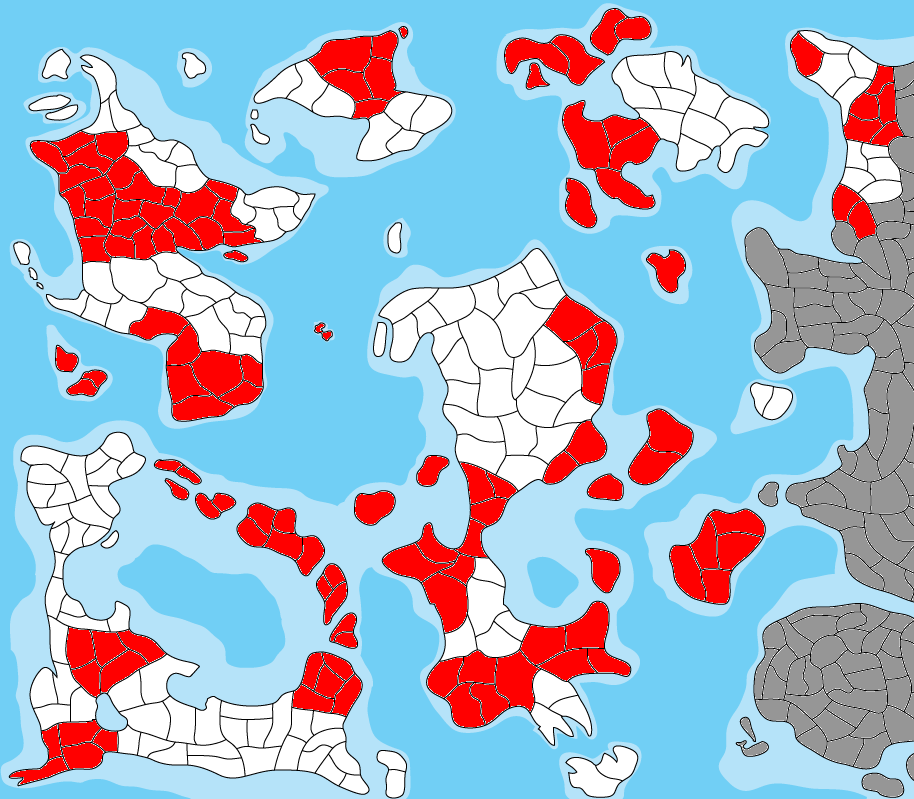We are working on a brand new version of the game! If you want to stay informed, read our blog and register for our mailing list.
Treaty on the Rights of Indigenous Peoples (TRIP)
This treaty was drafted in November 4469 by the  Sutton Nationalist Party | Labour Party.
Sutton Nationalist Party | Labour Party.
Status: ratification[?]
Description[?]
THE SIGNATORY NATIONS OF THIS TREATY ON THE RIGHTS OF INDIGENOUS PEOPLES, ACKNOWLEDGING the cultural and linguistic heritage of indigenous peoples contributes to Terra's global diversity, and, DECLARING respect for indigenous peoples' needs for unique civil, political, social, economic, and cultural systems, and, BELIEVING that indigenous peoples have the right to be INDEPENDENT and FREE, and, UNDERSTANDING indigenous peoples are called by the names "first peoples," "aboriginal peoples," "native peoples," and many others, RECOGNIZING indigenous peoples as ethnic groups who lay claim to being the original people of a given land or territory later colonized, conquered, settled, or occupied by another ethnic group, and, ALSO RECOGNIZING indigenous individuals are those people who are members of any aforementioned ethnics groups, DO AFFIRM AND AGREE TO ADHERE BY THE ARTICLES OF THIS TREATY ON THE RIGHTS OF INDIGENOUS PEOPLES : Article I: Indigenous peoples are equal to all other peoples, and therefore: - Section 1: Indigenous individuals and peoples have the right to self-determination. - Section 2: Indigenous individuals and peoples have the right to cultural identity. - Section 3: Indigenous individuals and peoples have the right to be consulted and make decisions on any matter that may affect their rights. - Section 4: Indigenous individuals and peoples have the right to live free from fear of discrimination. - Section 5: Indigenous individuals and peoples are born with the right to life, to live freely, and to be safe and secure. Article II: Indigenous peoples have the right to life, liberty, culture, and security. - Section 1: Indigenous peoples have the right not to be assimilated. They may not be forcefully removed or relocated from their lands. - Section 2: Indigenous individuals have the right to belong to indigenous communities and peoples. - Section 3: The right indigenous individuals and people to protect and revive their culture through practices, languages, education, media, and religion shall not be infringed. Article III: Indigenous peoples’ right to establish a system of governance for themselves shall be supported by the signatories of this treaty. - Section 1: Indigenous peoples have the right to take part in decision-making in all matters affecting them. - Section 2: Indigenous peoples have the right to develop their own political, economic and social systems. Article IV: Any rights or privileges experienced by non-Indigenous peoples in signatory nations must also be given to indigenous peoples within the national territory of signatory nations and as citizens of signatory nations abroad. - Section 1: Indigenous peoples resident in signatory nations shall receive the same level of healthcare provision as non-indigenous peoples within those nations. Signatory states may also develop special programs for monitoring, maintaining, and restoring the physical, spiritual, and mental health of indigenous peoples. - Section 2: Any government-supported protections of non-indigenous elderly citizens or of children of citizens must also be extended to indigenous elderly and indigenous children. Article V: Signatory nations will work towards supporting indigenous peoples in matters of cultural preservation. - Section 1: Signatory nations will assist indigenous peoples and support their claims to ancestral lands, through reparations, return of land, or some other mechanism. - Section 2: Signatory nations will work in conjunction with indigenous peoples to return any ceremonial objects and human remains identified by indigenous peoples as necessary for indigenous cultural practices or respectful remembrance. Article VI: Signatory nations may refuse to support or allow indigenous practices that exclude or discriminate against individuals on the basis of race, class, religion, gender, sex, sexual preference, culture or ethnicity. Article X: Signatory nations must abide by this treaty beginning no more than six months after ratification. |
Articles[?]
The treaty consists of the following articles.
Ratifiers[?]
The treaty has been formally ratified by the following nations.
Pending Ratifications
Compliance[?]
The treaty contains no articles that can be verified.
Ratification
You need to be logged in to view the section on ratification.
Ratification Map

| Random fact: Before choosing a nation, you may wish to research it first. For more information on the cultural backgrounds of the nations, please see the Cultural Protocols Index: http://forum.particracy.net/viewtopic.php?f=11&t=6365 |
| Random quote: "A politician who is poor is a poor politician." - Carlos Hank Gonzalez |